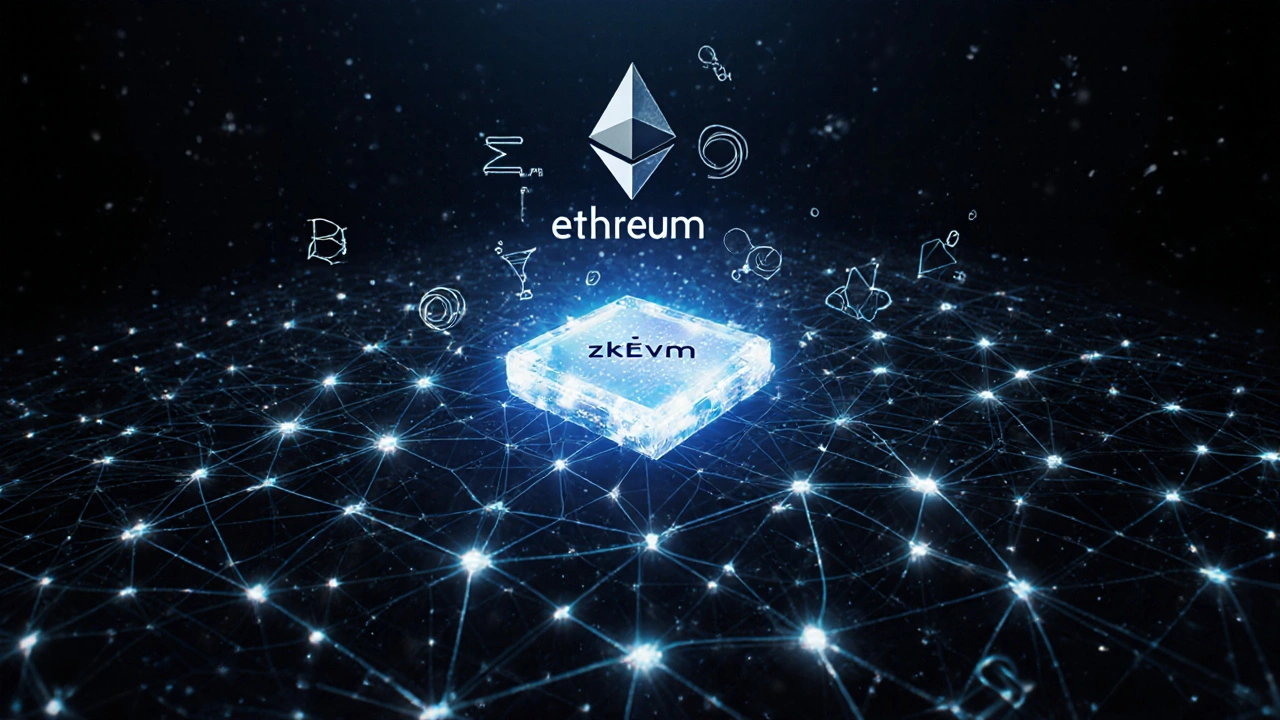Zero Knowledge: What It Is and Why It Matters
When talking about Zero Knowledge, a cryptographic method that lets one party prove a statement is true without revealing any underlying data. Also known as zero‑knowledge proof, it enables privacy‑preserving verification across many digital systems. In practice, zero knowledge encompasses concepts like zk‑SNARKs, zk‑STARKs and interactive proofs, all designed to keep sensitive information hidden while still confirming correctness.
One of the biggest arenas for zero‑knowledge tech is Blockchain, a distributed ledger that needs trust‑less validation. Blockchain relies on consensus algorithms such as Proof of Work, Proof of Stake, and Byzantine Fault Tolerance to secure transactions. Adding zero‑knowledge proofs to this mix enhances scalability and privacy, allowing users to prove ownership or transaction validity without exposing balances or personal data. This synergy explains why many new projects highlight their “privacy‑first” design.
Underlying both blockchain and zero‑knowledge systems is Cryptography, the science of encoding information. Cryptography provides the mathematical foundations—hash functions, elliptic curves, and commitment schemes—that make zero‑knowledge proofs possible. When these building blocks combine, developers can create tools such as privacy‑preserving NFTs, where provenance is verified without revealing the creator’s identity, or zk‑rollups that bundle thousands of transactions into a single proof for faster processing.
How Zero Knowledge Connects to Real‑World Topics
Zero knowledge isn’t just theory; it shows up in everyday tech decisions. For example, consensus algorithm guides like the one in our "Understanding Consensus Algorithms in Blockchain" post explain why a network might pick PoS over PoW, and how zero‑knowledge proofs can reduce the data each validator needs to check. Our "How to Promote an NFT Project" guide highlights using zero‑knowledge verification to assure collectors that a digital asset is authentic without exposing the creator’s private keys. Even broader subjects—like travel budgeting or health tips—benefit indirectly, because privacy‑preserving tools let users share minimal data when booking hotels or accessing medical info online.
Overall, zero knowledge sits at the intersection of privacy, efficiency, and trust. It requires strong cryptographic primitives and often works hand‑in‑hand with blockchain consensus mechanisms, influencing how new platforms launch, how NFTs gain credibility, and how users protect their personal data. Below you’ll find a curated set of articles that dive deeper into these connections, from technical breakdowns of consensus models to practical steps for NFT promotion, and even how these technologies shape everyday experiences like travel planning and health management. Explore the collection to see zero knowledge in action across multiple domains.
- September 21 2025
- 0 Comments
- Lucas Harrington
How zkEVM Works: A Simple Guide to Zero‑Knowledge Ethereum Compatibility
Learn how zkEVM works, from zero‑knowledge proofs to full EVM compatibility, and why it's a game‑changer for Ethereum scalability.
- Disney World Vacations (35)
- Kissimmee Florida (29)
- Florida travel (26)
- Crypto & Blockchain (10)
- Information & Privacy (5)
- Blockchain & Cryptocurrency (4)
- Disney Parks & Tips (3)
- Disney History (3)
- Travel (2)
- Travel Tips (2)
Categories
- January 2026 (6)
- December 2025 (29)
- November 2025 (41)
- October 2025 (16)
- September 2025 (6)
- August 2025 (3)
- July 2025 (3)
- June 2025 (2)
- May 2025 (2)
- April 2025 (1)
- March 2025 (6)
- February 2025 (11)
Archives
- Florida beaches
- Disney World
- Florida
- Florida travel
- Kissimmee demographics
- Kissimmee
- Kissimmee Florida
- Orlando tourism
- Disney park hours
- Disney World tips
- Disney vacations
- Disney 100
- theme park tips
- Disney celebration
- tourism
- Disney secrets
- Disney history
- travel
- Disney World crowd calendar
- Disney World cost

